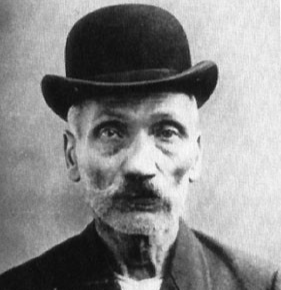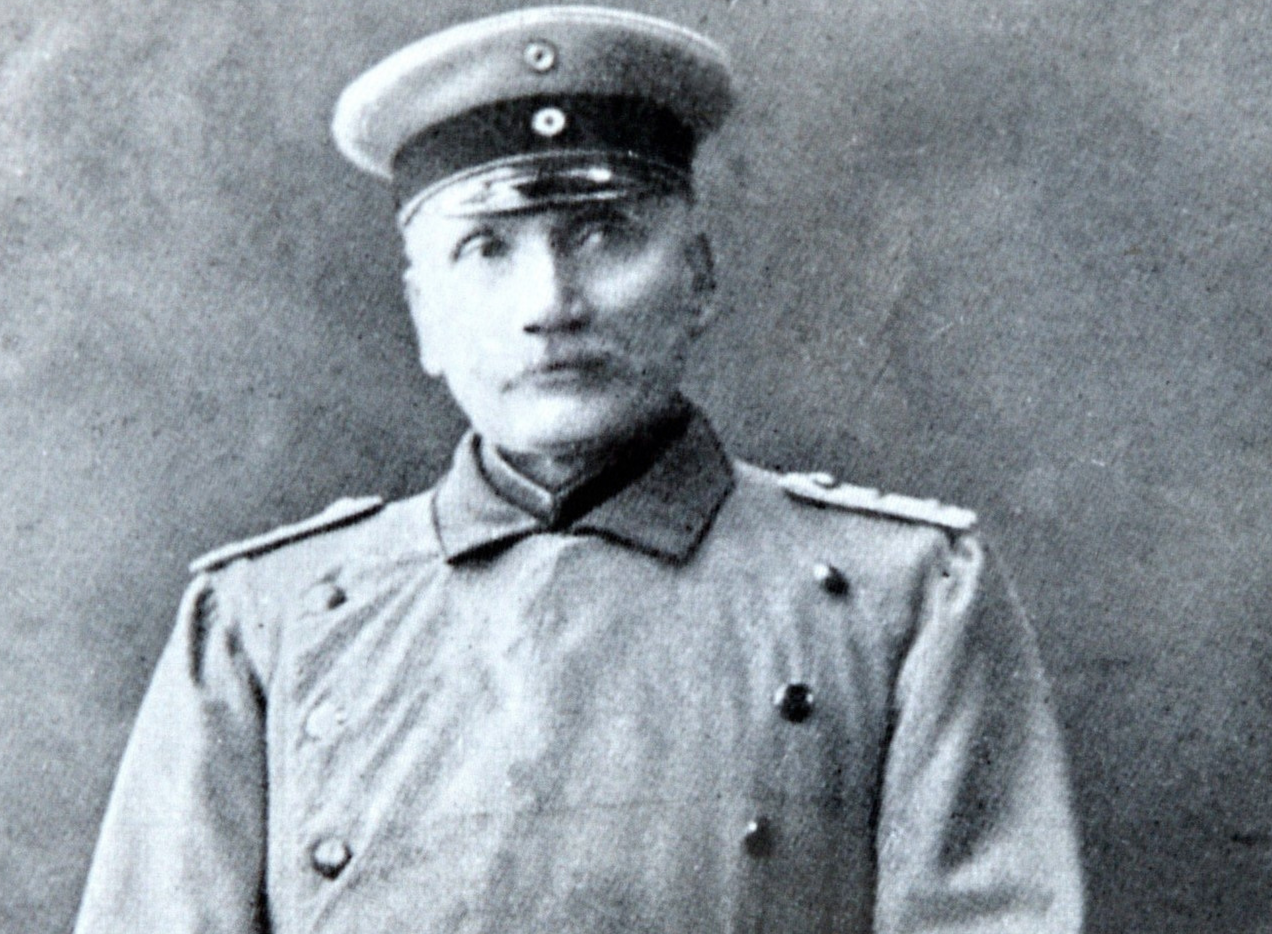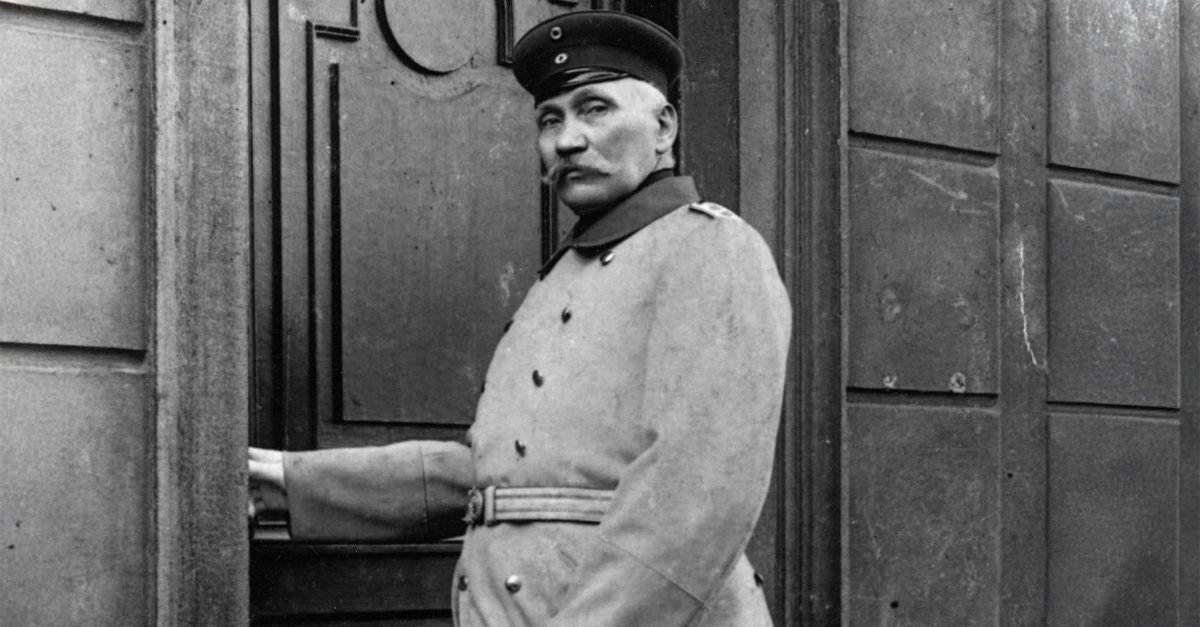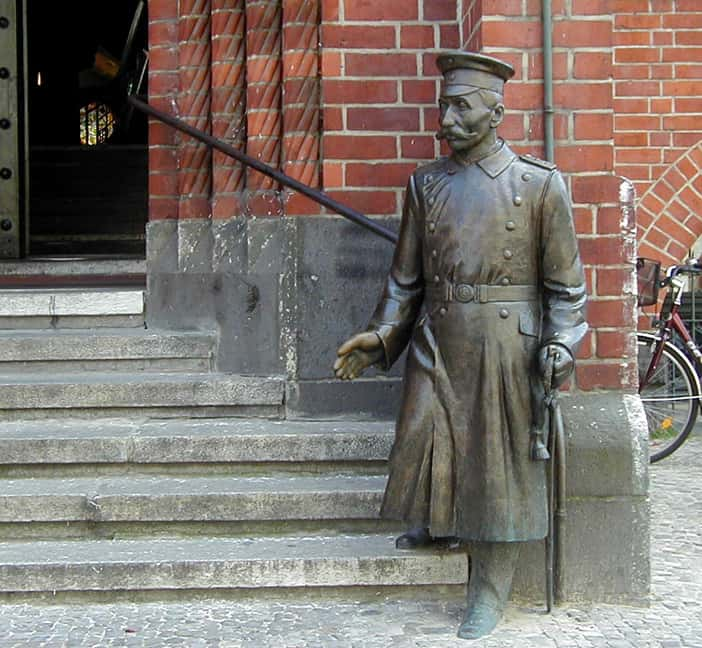Few stories are as crazy as that of Wilhelm Voigt, the imposter who commandeered a squad of soldiers, “arrested” a mayor, and stole the town treasury—all while wearing an old army uniform. Known as the Captain of Köpenick, Voigt’s stunt became a symbol of blind obedience to authority in Prussia, and remains one of the most bizarre events in history.
A Life At The Foot Of Society
Wilhelm Voigt was no stranger to the law. Born in 1849, he grew up in East Prussia and spent his early life drifting between jobs as a shoemaker. By his late 50s, he'd been in and out of prison for much of his life, mostly for forgery and theft. He was a man with no country, profession, or official residence. German bureaucracy had made him a stateless person, unable to work or live legally anywhere.
 Government of Prussia, Wikimedia Commons
Government of Prussia, Wikimedia Commons
He Had Some Tricks Up His Sleeve
One thing that Voigt did have was a deep understanding of how seriously Germans—especially Prussians—respected uniforms and authority. He’d "been around the block" a few times and had developed a brilliant sense of irony, a gift for performance, and a plan that would soon make him famous.
His Disguise Changed Everything
In October 1906, Voigt purchased a second-hand captain’s uniform from a Berlin theatrical costumer. Clad in this symbol of Prussian authority, he strode boldly into a Berlin barracks and commanded a group of soldiers, claiming he was on official orders from higher up the chain of command.
They All Fell In Line
Amazingly, the soldiers complied without question. Such was the power of his rank and uniform that no one dared challenge his orders. With army discipline on his side, Voigt led the group to the nearby town of Köpenick, where he arrested the mayor and town treasurer for “irregularities”, seized over 4,000 marks, and commandeered the town hall.
 Unknown authorUnknown author, Wikimedia Commons
Unknown authorUnknown author, Wikimedia Commons
The Arrest Heard Round The Empire
After detaining the officials and collecting the cash, Voigt ordered the soldiers to remain at their posts while he took off with the money. It wasn’t until hours later—after he was long gone—that anyone realized they’d been hoodwinked.
An Entire Nation Was Floored
News of the stunt hit Germany like a thunderbolt. The idea that a common thief could exploit the country’s rigid official culture so easily was both hilarious and deeply embarrassing. The press had a field day, and the public was abuzz retelling the tale. For a nation steeped in order, discipline, and hierarchy, Voigt’s charade was comedy gold.
He Was A Hero And An Outlaw
Voigt was caught ten days later. He was sentenced to four years in prison, but he’d already become a celebrity. Many Germans saw him not as a lawbreaker, but as a folk hero who exposed the absurdities of a militarized society. Kaiser Wilhelm II, initially furious at the humiliation, began to see the humor, —and perhaps the truth—in Voigt’s shenanigans. In 1908, he pardoned Voigt, freeing him after less than two years behind bars.
Legacy Of The Captain Of Köpenick
Wilhelm Voigt’s escapade became the subject of plays, films, books, and even operettas. The most famous dramatization was a 1931 play The Captain of Köpenick, which captured the event’s satirical quality. Voigt himself capitalized on his notoriety, posing for pictures and giving public appearances. He moved to Luxembourg and lived comfortably off the name he’d made for himself until his passing in 1922.
A Man In Uniform
The Captain’s story lives on not just because it’s absurd, but because it reveals the dangers of blind authority. Voigt’s scam worked because the soldiers, officials, and townspeople all blindly obeyed a person in uniform. In doing so, Voigt exposed the folly of a system so rigid it could be fooled by a tailor’s costume.
You May Also Like:
Guilty Facts About James Fisk, The Fraudulent Financier
Was This The Greatest Hoax Ever Made?













